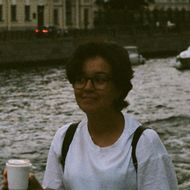Word predictability in texts read by native and non-native speakers
One of the research trajectories in the Center for Language and Brain is the research of reading. The current project is dedicated to studying the predictability of words within a text. The ability to form predictions based on the context plays an important role in speech processing and reading. For instance, it was shown that word predictability is one of the most important factors that influence eye-movements during reading.
Studying predictability
While other parameters relevant for reading (e.g., word length and frequency) can be establisheddirectly or found in dictionaries and corpora, predictability assessment requires experimental data. The most common way to establish the predictability of a given word is the so-called cloze procedure (Taylor, 1953). In this procedure, participants are presented with a portion of a sentence ending with a gap and then asked to guess which word is most likely to follow. In most studies, the cloze procedure was used to establish the predictability of words in isolated sentences. In our project, we turn to the predictability of words within texts.
Predictability in L1 and L2
We are interested in how the ability to predict upcoming words differs in native and non-native speakers. The study is conducted in collaboration with V. Kuperman and colleagues (McMaster University, Canada). Members of our group participated in the MECO (Multilingual Eye-movement Corpus) project. The MECO corpus includes the data on reading in different languages and in English as L2. For the current project, the data were collected from English speakers (by the colleagues in Canada) and Russian speakers (by the members of our group). English speakers read texts in English as L1, while Russian speakers read texts in English as L2 and in Russian as L1. We are also planning to collect the data from non-native Russian speakers.
Have you spotted a typo?
Highlight it, click Ctrl+Enter and send us a message. Thank you for your help!
To be used only for spelling or punctuation mistakes.

